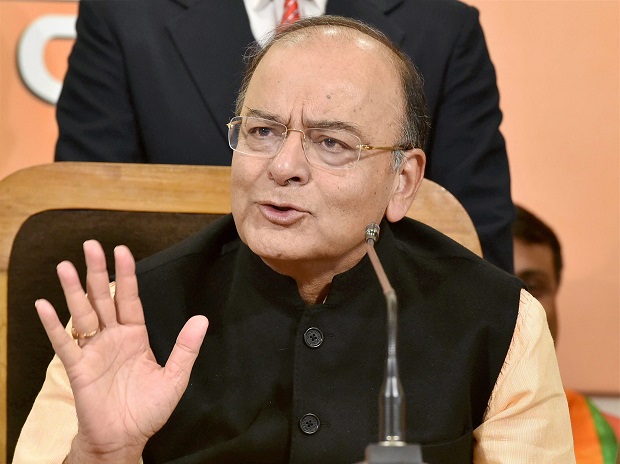GST Council OKs law for compensation to states
Business Standard
By Arup Roychoudhury
February 19, 2017. 10:36 IST
To meet again on March 4 and 5 and take up supporting legislation

The Goods and Services Tax (GST) Council, at its 10th meeting on Saturday, ratified the draft law for compensation to states. However, it could not ratify the three enabling laws — Integrated GST (IGST), State GST (SGST) and Central GST (CGST) draft laws because of some contentious issues that cropped up.
These three enabling laws are now expected to be ratified by the GST Council in its next meeting, on March 4 and 5 in New Delhi, Finance Minister Arun Jaitley said. If they are ratified, they would be taken up in Parliament during the second half of the Budget session starting March 9.
It was also decided at the meeting, held in Udaipur, that a fourth law, for Union Territories, would also be drafted on the lines the SGST draft law, and would be cleared by Parliament, said senior government sources.
“The legally vetted draft of the compensation Bill came before the Council and was approved. It will not come before the Council anymore, and will be taken to the Cabinet for approval. After that, we will make efforts to pass it in the second leg of the Budget session,” Jaitley told reporters.
“During the legal drafting of the CGST, SGST and IGST laws, certain contentious issues came to the fore and it was necessary to place all the issues before the Council again to take specific directions. So, the legal committee of the GST Council sought clarifications from us today. These will be incorporated, and at the March 4-5 meeting in Delhi, these laws will be cleared,” he added.
The FM said the legal committee had queries from the all-powerful Council, which consists of Jaitley and state finance ministers, on the composition of an appeal tribunal in the Centre and states, eligibility of members, delegation of powers, exemptions during the transition phase, services and value-added tax (VAT) in work contracts where it will be taxed, and the definition of agriculture.
“It now looks highly probable that the GST laws would be formally approved by the Council in the next meeting and the central laws would be put up before Parliament in the second half of the Budget session, starting on March 9,” said Pratik Jain, partner and leader, indirect tax, PwC-India.
After the meeting, Jaitley said that the next step will be regarding which commodity will come in which slab. After the meeting on March 4-5, revenue department officials will have to fit each item against a particular slab. “We (the GST Council) will require one major meeting to give approval to those specific items in relation to each of the slabs,” said Jaitley.
“It is now necessary to bring more focus on the outcome of fixing rates, as businesses can prepare only if the rates are known. Without knowledge of the rates that are going to be applied on specific goods and services it is very difficult for industry to move forward with GST preparations,” said M S Mani, senior director, Deloitte Haskins & Sells LLP.
Senior government sources said based on the SGST draft law, a UTGST law would be drafted. “This will be for Union Territories and will be cleared by Parliament,” said an official, but did not clarify the timeline for such a draft law.